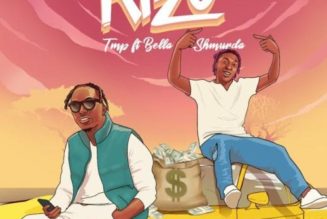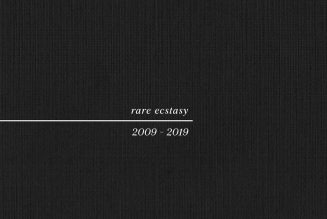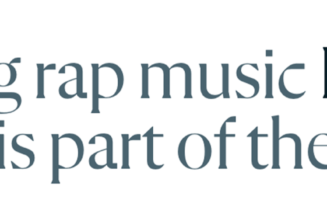Spotify is going through something right now. On Monday morning, the industry-defining audio streaming service announced that it would be hiking its Premium subscription prices for users in the United States, effective next month. The individual plan is rising by $1, the Duo plan by $2, and the family subscription by $3.
These shifts arrive almost a year after Spotify raised U.S. subscription rates for the first time ever, upping the individual plan to $10.99 a month to match with competitors’ price points. That increase was meant to mollify music-industry executives (who demanded better royalty payouts) and investors (who demanded that Spotify squeeze out regular profits). The new costs, however, make the paid Spotify experience slightly more expensive than either Apple Music or YouTube Music. As a consolation prize, the service is offering paying listeners another special goody: If you’re only on the free tier, there will be a limit on the amount of song lyrics made available to read within the app while you’re listening. (Just in case you didn’t know how to take the extra seconds to use a resource like AZLyrics or Genius.)
As in 2023, the updated cost tiers have been imposed in response to persistent profitability concerns, most urgently stemming from the costs of Spotify’s aggressive push into audiobooks, a venture that has been a heavier lift than the company likely expected. Back in March, Spotify reclassified all those aforementioned plans as Bundled Subscription Offerings so that already-paying customers would automatically gain access to these audiobooks, alongside their favorite songs and lyrics and videos and podcasts. In response, the Mechanical Licensing Collective—a government-established nonprofit that helps coordinate royalty checks from streamers—lodged a federal lawsuit against Spotify last month, accusing it of undercutting liabilities by lowering artist payouts from Premium fees while expanding the products available to subscribers at little to no additional charge.
That comes on top of other litigation and threats to that effect. The National Music Publishers’ Association, a powerful trade group for big songwriter-publishing firms, also objected to Spotify’s new “bundles” and served the company a cease-and-desist over its alleged platforming of unlicensed lyrics, music videos, and podcasts. The CEO of Sony Music Publishing, one of the companies repped by NMPA, sent a letter to the artists under his wing explaining that he was working with the trade group to explore “all options to enforce the improved rates” Spotify was entitled to pay songwriters pre-bundle. (Translation: More suits may be on the table.)
Meanwhile, Spotify is also dealing with a class-action suit from aggrieved subscribers who bought its beloved “Car Thing” audio gadget, all existing models of which will be bricked by the end of the year. Although it didn’t at first commit to offering refunds, the company is now providing compensation to customers who bought a $90 Car Thing directly from Spotify itself, and not from a resale market, through disbursements of small digital checks up to $12.
There’s an easy joke to be made about how the $12 refund installments exceed the fledgling compensation Spotify offers to most artists. (Consider those whose tracks never surpass the 1,000-play monetization threshold.) But over these past few weeks, Spotify has already done a fine enough job of directing public disdain its way.
The bundling controversies earned condemnation from outside the legal realm, with Spotify’s own former global head of music publishing writing a Billboard op-ed decrying the new arrangements as “blatantly dishonest.” Other objectors came roaring over the weekend, when CEO Daniel Ek posted an ill-advised tweet that noted, “Today, with the cost of creating content being close to zero, people can share an incredible amount of content.” After many artists expressed understandable fury at having their painstaking, expensive, labor-intensive creative work referred to as low-effort “content,” Ek clarified that his “original point was not to devalue the time, effort, or resources involved in creating meaningful works” and that he had been thinking of “the significant drop in the cost of creation tools (microphones, laptops, cameras).”
I’m not sure Ek actually understands the value of any kind of labor and human input outside the C-suite, however. On Spotify’s most recent quarterly earnings call, he sounded flabbergasted that in the aftermath of the company’s biggest-ever round of layoffs—17 percent of the workforce, about 1,500 employees, axed in December—there had been an ensuing impact on basic operations and even user growth.
“It did disrupt our day-to-day operations more than we anticipated,” Ek informed investors in April. “It took us some time to find our footing.”
Those cuts were spurred by a depressed stock price and heaping expenses. But even though Spotify didn’t make up the difference in profits, shareholders were happy enough with the job cuts that Spotify stock rebounded once more. As it happens, Ek and his fellow executives have taken advantage of that to sell off ample amounts of their shares, Bloomberg reported, with the CEO redirecting the proceeds toward “investments focused on artificial intelligence, life sciences and climate,” including “a Swiss startup that works on slowing the aging process.” (Seriously, what’s up with these guys and antiaging tech?)
So while a subscription-price hike may just make basic business sense for Ek and the Spotify C-suite, it’s also a clear means of juicing whatever value he can from a company that’s long been looking away from its original function: music streaming. (The company’s latest deals to expand its video-podcast library and to function an extension with Google’s Gemini chatbot only underscore that point.) The company may weather that just fine: Bloomberg’s Lucas Shaw notes that Spotify retains its first-mover advantage in the audio-streaming market among subscribers, who find it hard to quit if they were early adopters. Spotify was basically to music what Netflix was to video, and it still is.
Ek probably isn’t too bothered by the lawsuits, or the burdens of running a much leaner operation, or outrage from both listeners and musicians over a more expensive plan to “justify adding things [they] don’t want” that continues to undercut the artists whose work make Spotify what it is. At least the stock price is resurging.









